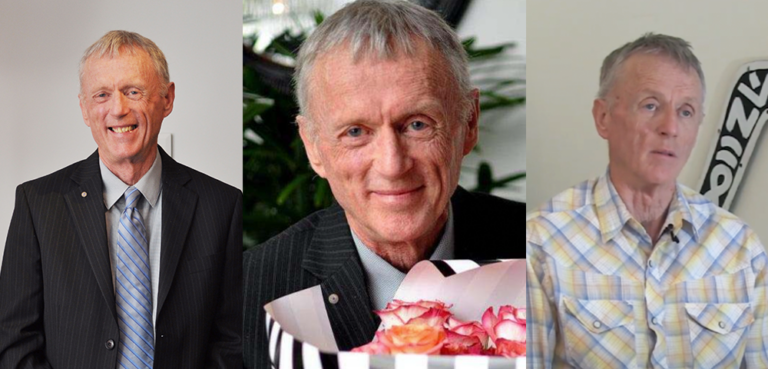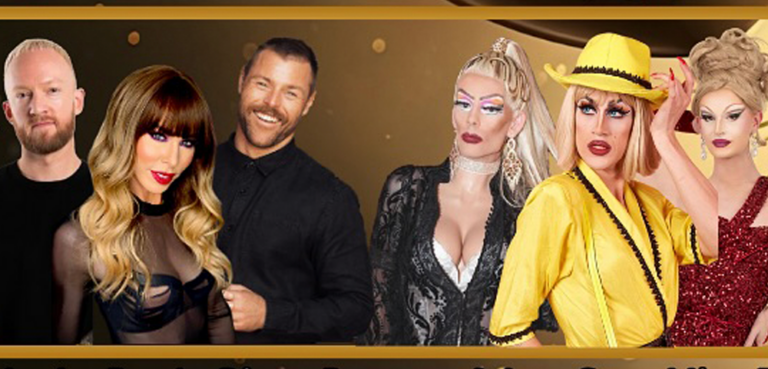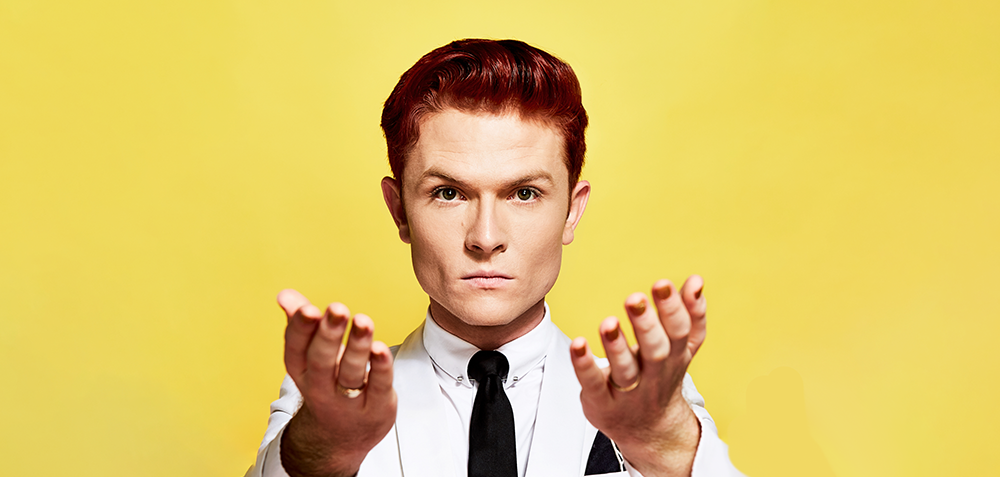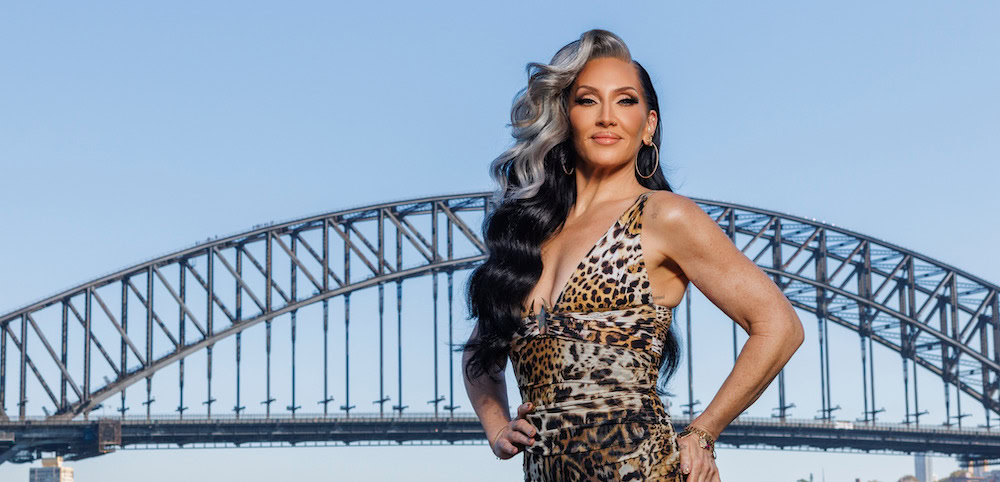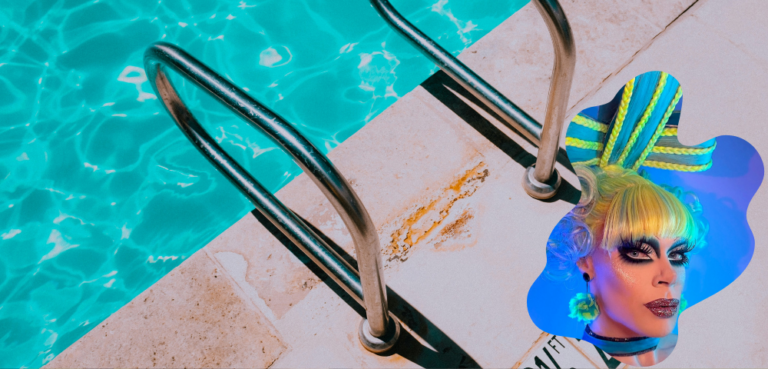
How body image affects you when you’re queer and disabled

Negative body image can be a major issue for people in the queer community, but what happens when you’re living with a disability that affects your body as well? Jess Jones reports.
***
Sam*, who has fibromyalgia and autism, doesn’t like their body and has trouble accepting that others could like it. Sam has a lot of physical symptoms including severe pain, and often walks using a stick.
“I assume my body is unlovable,” they say.
“If someone I love wants to touch it, my brain tells me they’re just being nice so I won’t feel too bad.”
Sam is asexual and panromantic – open to non-sexual romantic relationships with people of any gender.
While they get the usual looks from people in public when they’re with a partner who is also femme-presenting, because of their disability they also find that strangers are compelled to make remarks about their body.
“When I have a walking stick, people look,” they say.
“I get ‘poor thing’ comments and people asking what happened. If I’m out with a partner, people ask both of us questions. They’ll ask if they’re my carer, or tell my partner how hard it must be for them.
“Often strangers will come up and tell my partner how sorry they feel for them. Most of it is patronising.”
Sam thinks that cultural ideas around disability are largely to blame for disabled bodies being seen as unlovable.
“It’s in our culture and media that having a disability is undesirable, so dating someone with a disability is undesirable,” they say.
“If you date someone with a physical disability, it must be so hard for you, you’re such a good person. People joke about getting old enough to need a walking stick. It all goes in and it all contributes.
Sam’s body image is affected by their disabilities and by how people see them.
“We have all these messages from well-meaning people telling us to love our bodies and have confidence, but my body is in constant pain,” they explain.
“I can’t stand with good posture. I walk with a limp and I physically can’t gain muscle. My body looks like someone who’s tired and in pain. I’ve even had a co-worker ask me if I was pregnant just because of how I was standing.
“I’m constantly worried people will think things like that or think I’m lazy. I can’t love my body because I feel like it doesn’t even like me.”
Natasha Milner is the disability education coordinator for relationship and reproductive health organisation True.
She says people with disabilities can face specific challenges in terms of relationships and sexuality. They can be more susceptible to relationship and sexual health problems than the wider population, and can feel socially isolated.
“In some cases adults with disabilities are treated like a perpetual child, and not supported to access education about relationships and sexuality,” she says.
“Education should be provided that is age appropriate and respectful of diversity in sexual attraction and gender identity.
“It is important that people with disabilities are treated as sexual beings and are offered the same opportunities to learn about sexual health and relationships as everyone else.
“Research shows that understanding topics such as consent, pleasure, respect, and looking after your body supports better relationship and sexual health outcomes for everyone.”
Alex is an intersex person who describes their disabilities as “complicated”. They include bipolar disorder that can’t be medicated because they have a kidney transplant, and the ups and downs can be intense.
“I just have to live with it,” they explain.
“And I treat the intersex thing as a mental health issue because of all the stuff I went through as a kid. I have to have hormone treatment for the rest of my life.”
Alex’s body image is affected strongly by being intersex.
“Trying to be a cis male when you don’t look like a cis male, that affects the way you view yourself,” they say.
“Because I’ve got both male and female characteristics, I worry that people will be confused more than anything. People don’t seem to get it.
“So I’ve been on my own for five years. No one really gets it, in my experience.”
Alex finds it very isolating when people don’t understand their body.
“I spend most of my time by myself,” they say.
“I’m in my thirties, and a lot of my friends are too busy. And I’m an introvert naturally, so that leads to further isolation. I get overwhelmed by seeing too many people at once.
“With my bipolar disorder, during my lows I get very irritable and I don’t want to deal with people at all.”
Being intersex and looking androgynous presents its own challenges for Alex, particularly in relation to dating.
“One minute I’ll be read as female and the next minute I’ll be read as male,” they say.
“No one would pick me as intersex, unless they see the beard and the boobs at the same time.
“People’s sexualities tend to be geared toward the binary, even in the queer community. For someone like myself who’s physically and biologically and mentally in the middle, people think I’m not to their taste.”
Alex isn’t into hookups and prefers to get to know someone well before establishing a relationship. They have trust problems because of medical issues they’ve had in the past.
“You’d trust a nurse to do the right thing, for example,” they say.
“But when I was a kid, being intersex, I’d have nurses stick fingers up me. I had surgeons completely change my anatomy without me realising what that really meant. I was basically a medical experiment, and these are people I trusted. The effect is lifelong, and you can’t trust anymore.
“With my ex, I had to get to know her over a period of time before we did anything else. For anyone else, I’d have to be friends with them for a long time first before getting to the point of a relationship. It can take up to a year or more for me to get close to someone.”
Alex has issues with their overall body image as well.
“I don’t really like how I look,” they say.
“I’m overweight, and the weight is in all different strange parts, like I’ve got a lot of puffiness in my face because of the steroids I’m on for my kidney.”
Alex says that because of their body they often feel unloved.
“Body image in my mind is about how you think about yourself and whether you can be loved. I’ve lost family, and that impacts my self image,” they say.
In terms of sexuality, Alex struggles because of the effects of the surgeries they had as a child. They call sex “a logistical nightmare” because their anatomy is neither typically male nor female, and they have nerve damage from the procedures.
“Part of the reason my ex and I drifted apart was because she got all the feeling and I got none of it, so sexually I couldn’t bond with her properly,” they explain.
“What I miss most about a relationship is more the companionship.”
*Not their real name.


